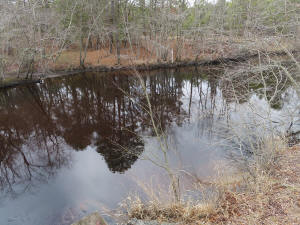Group says New Jersey toxic waste dumping caused $1B in harm, calls
settlement inadequate
 Send a link to a friend
Send a link to a friend
 [December 18, 2024] By
WAYNE PARRY [December 18, 2024] By
WAYNE PARRY
TOMS RIVER, N.J. (AP) — Years of toxic waste dumping in a Jersey Shore
community where childhood cancer rates rose caused at least $1 billion
in damage to natural resources, according to an environmental group
trying to overturn a settlement between New Jersey and the corporate
successor to the firm that did the polluting.
Save Barnegat Bay and the township of Toms River are suing to overturn a
deal between the state and German chemical company BASF under which the
firm will pay $500,000 and carry out nine environmental remediation
projects at the site of the former Ciba-Geigy Chemical Corporation
plant.
That site became one of America's worst toxic waste dumps and led to
widespread concern over the prevalence of childhood cancer cases in and
around Toms River.
Save Barnegat Bay says the settlement is woefully inadequate and does
not take into account the scope and full nature of the pollution.
The state Department of Environmental Protection defended the deal,
saying it is not supposed to be primarily about monetary compensation;
restoring damaged areas is a priority, it says.

“Ciba-Geigy’s discharges devastated the natural resources of the Toms
River and Barnegat Bay,” said Michele Donato, an attorney for the
environmental group. “The DEP failed to evaluate decades of evidence,
including reports of dead fish, discolored waters, and toxic effluent,
that exist in its own archived files.”
Those materials include documents dating back to 1958 detailing fish
kills and severe oxygen depletion caused by the company's dumping of
chemicals into the Toms River and directly onto the ground. It also
includes a study by a consultant for Ciba-Geigy showing that a plume of
contaminated underground water is three-dimensional and thus could not
be adequately assessed by the manner used by New Jersey to calculate
damage to natural resources, the group said.
An accurate calculation of damages to the site and the surrounding area
would exceed $1 billion, Save Barnegat Bay said in court papers.
[to top of second column] |

Trees are reflected in the slow-moving Toms River on Feb. 21, 2023,
where the former Ciba-Geigy Chemical Corp. dumped toxic waste for
decades. (AP Photo/Wayne Parry)
 "This deal does not come close to
compensating our community for what we’ve suffered,” former Toms
River Mayor Maurice Hill said in a January public hearing on the
settlement.
The state declined to comment. In court papers, it defended its
handling of the damage assessment.
BASF, which is the corporate successor to Ciba-Geigy, declined
comment on the litigation but said it is committed to carrying out
the settlement it reached with New Jersey in 2022.
That calls for it to maintain nine projects for 20 years, including
restoring wetlands and grassy areas; creating walking trails,
boardwalks and an elevated viewing platform; and building an
environmental education center.
Starting in the 1950s, Ciba-Geigy — which had been the town’s
largest employer — flushed chemicals into the Toms River and the
Atlantic Ocean, and buried 47,000 drums of toxic waste in the
ground. This created a plume of polluted water that has spread
beyond the site into residential neighborhoods and is still being
cleaned up.
The state health department found that 87 children in Toms River,
which was then known as Dover Township, had been diagnosed with
cancer from 1979 through 1995. A study determined the rates of
childhood cancers and leukemia in girls in Toms River “were
significantly elevated when compared to state rates.” No similar
rates were found for boys.
The study did not explicitly blame the increase on Ciba-Geigy’s
dumping, but the company and two others paid $13.2 million to 69
families whose children were diagnosed with cancer. Ciba-Geigy
settled criminal charges by paying millions of dollars in fines and
penalties on top of the $300 million it and its successors have paid
so far to clean up the site.
All contents © copyright 2024 Associated Press. All rights reserved |